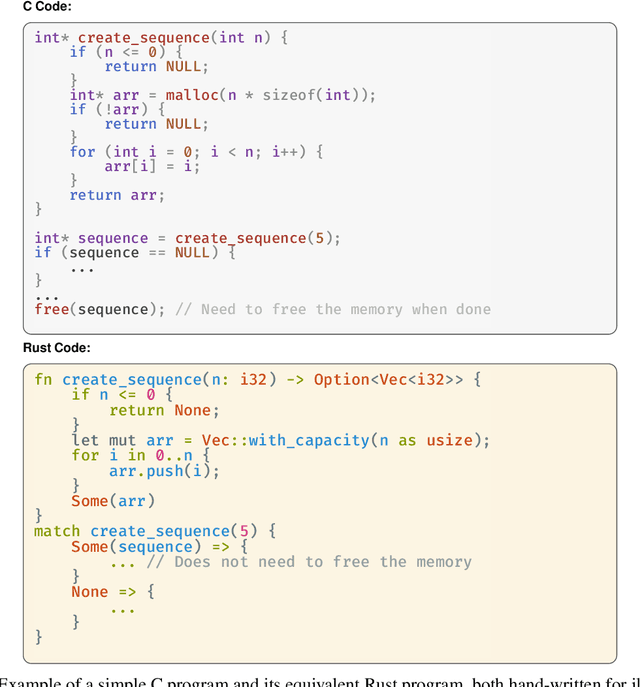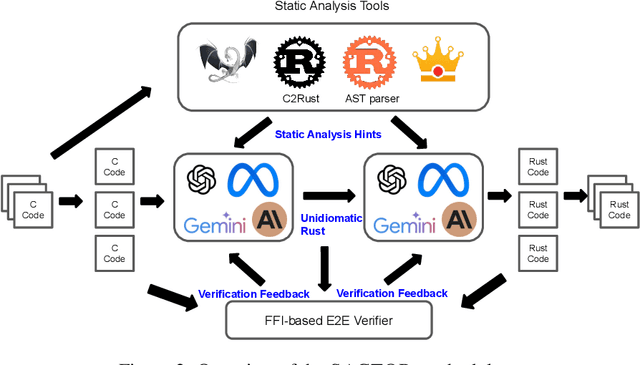LLM-Driven Multi-step Translation from C to Rust using Static Analysis
Paper and Code
Mar 16, 2025



Translating software written in legacy languages to modern languages, such as C to Rust, has significant benefits in improving memory safety while maintaining high performance. However, manual translation is cumbersome, error-prone, and produces unidiomatic code. Large language models (LLMs) have demonstrated promise in producing idiomatic translations, but offer no correctness guarantees as they lack the ability to capture all the semantics differences between the source and target languages. To resolve this issue, we propose SACTOR, an LLM-driven C-to-Rust zero-shot translation tool using a two-step translation methodology: an "unidiomatic" step to translate C into Rust while preserving semantics, and an "idiomatic" step to refine the code to follow Rust's semantic standards. SACTOR utilizes information provided by static analysis of the source C program to address challenges such as pointer semantics and dependency resolution. To validate the correctness of the translated result from each step, we use end-to-end testing via the foreign function interface to embed our translated code segment into the original code. We evaluate the translation of 200 programs from two datasets and two case studies, comparing the performance of GPT-4o, Claude 3.5 Sonnet, Gemini 2.0 Flash, Llama 3.3 70B and DeepSeek-R1 in SACTOR. Our results demonstrate that SACTOR achieves high correctness and improved idiomaticity, with the best-performing model (DeepSeek-R1) reaching 93% and (GPT-4o, Claude 3.5, DeepSeek-R1) reaching 84% correctness (on each dataset, respectively), while producing more natural and Rust-compliant translations compared to existing methods.
 Add to Chrome
Add to Chrome Add to Firefox
Add to Firefox Add to Edge
Add to Edge